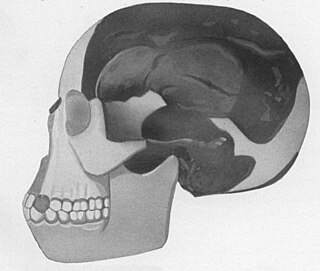Related Research Articles

Scientific misconduct is the violation of the standard codes of scholarly conduct and ethical behavior in the publication of professional scientific research. It is violation of scientific integrity: violation of the scientific method and of research ethics in science, including in the design, conduct, and reporting of research.
In academic publishing, a retraction is a mechanism by which a published paper in an academic journal is flagged for being seriously flawed to the extent that their results and conclusions can no longer be relied upon. Retracted articles are not removed from the published literature but marked as retracted. In some cases it may be necessary to remove an article from publication, such as when the article is clearly defamatory, violates personal privacy, is the subject of a court order, or might pose a serious health risk to the general public.
Luk Van Parijs was an associate professor of biology at the Massachusetts Institute of Technology (MIT) Center for Cancer Research. After investigating for a year, MIT fired Van Parijs for research misconduct. Van Parijs admitted to fabricating and falsifying research data in a paper, several unpublished manuscripts, and grant applications. In March 2011, Van Parijs pleaded guilty in a U.S. District Court in Boston to one count of making a false statement on a federal grant application. The government asked Judge Denise Casper for a 6-month jail term because of the seriousness of the fraud, which involved a $2-million grant. After several prominent scientists including Van Parijs' former post-doc supervisor pleading for clemency on his behalf, on 13 June, Van Parijs was finally sentenced six months of home detention with electronic monitoring, plus 400 hours of community service and a payment to MIT of $61,117 - restitution for the already-spent grant money that MIT had to return to the National Institutes of Health.

Brian Wansink is an American former professor and researcher who worked in consumer behavior and marketing research. He was the executive director of the USDA's Center for Nutrition Policy and Promotion (CNPP) from 2007 to 2009 and held the John S. Dyson Endowed Chair in the Applied Economics and Management Department at Cornell University, where he directed the Cornell Food and Brand Lab.
Paolo Macchiarini is a thoracic surgeon and former regenerative medicine researcher who became known for research fraud and manipulative behavior. He was convicted of research-related crimes in Italy and Sweden.
Carlo Maria Croce is an Italian-American professor of medicine at Ohio State University, specializing in oncology and the molecular mechanisms underlying cancer. Croce and his research have attracted public attention because of multiple allegations of scientific misconduct.
Joachim Boldt is a German anesthesiologist who fabricated or falsified data, including those reporting clinical trial results.
Scientific Reports is a peer-reviewed open-access scientific mega journal published by Nature Portfolio, covering all areas of the natural sciences. The journal was established in 2011. The journal states that their aim is to assess solely the scientific validity of a submitted paper, rather than its perceived importance, significance, or impact.

Retraction Watch is a blog that reports on retractions of scientific papers and on related topics. The blog was launched in August 2010 and is produced by science writers Ivan Oransky and Adam Marcus. Its parent organization is the Center for Scientific Integrity, a US 501(c)(3) nonprofit organization.
Dipak Kumar Das was the director of the Cardiovascular Research Center at the University of Connecticut Health Center in Farmington and is known for research fraud. His work centered on the beneficial properties of resveratrol, which is found in red wine, but over twenty of his research papers have been since retracted.
Clare Francis is a pseudonym used since 2010 by the author of hundreds of whistle-blowing emails sent to the editors of scientific journals that call attention to suspected cases of plagiarism and fabricated or duplicated figures. Described as a scientific gadfly, the pseudonymous Francis is "a source both legendary and loathed in biomedical circles" for their "uncanny knack for seeing improperly altered images, as well as smaller flaws that some editors are inclined to ignore." Francis refers to themself as an "attentive reader"; their "real identity, gender, and occupation remain secret."
Amy J. Wagers is the Forst Family Professor of Stem Cell and Regenerative Biology at Harvard University and Harvard Medical School, an investigator in islet cell and regenerative biology at the Joslin Diabetes Center, and principal faculty of the Harvard Stem Cell Institute. She is co-chair of the Department of Stem Cells and Regenerative Biology at Harvard Medical School.
Bharat B. Aggarwal is an Indian-American biochemist. His research has been in the areas of cytokines, the role of inflammation in cancer, and the anti-cancer effects of spices and herbs, particularly curcumin. He was a professor in the Department of Clinical Immunology, Bioimmunotherapy, and Experimental Therapeutics at University of Texas MD Anderson Cancer Center in Houston, Texas.
Annarosa Leri is a medical doctor and former associate professor at Harvard University. Along with former professor Piero Anversa, Leri was engaged in biomedical research at Brigham and Women’s Hospital in Boston, an affiliate of Harvard Medical School. Since at least 2003 Anversa and Leri had investigated the ability of the heart to regenerate damaged cells using cardiac stem cells.
Douglas D. Taylor is an entrepreneur and former academic researcher in the field of extracellular vesicles.
Joyoti Basu is an Indian biochemist, cell biologist and a senior professor at the Bose Institute. Known for her studies on the membrane structure of red blood cells, Basu is an elected fellow of all three major Indian science academies, namely the National Academy of Sciences, India, the Indian Academy of Sciences and the Indian National Science Academy, as well as the Indian Society for Chemical Biology. The Department of Biotechnology of the Government of India awarded her the National Bioscience Award for Career Development, one of the highest Indian science awards, for her contributions to biosciences in 2002.
Sunil Kumar Manna is an Indian immunologist and the head of the immunology lab of the Centre for DNA Fingerprinting and Diagnostics. He is known for his studies on cell signaling and apoptosis. The Department of Biotechnology of the Government of India awarded him the National Bioscience Award for Career Development, one of the highest Indian science awards, for his contributions to biosciences, in 2009.
Jonathan Neal Pruitt is a former academic researcher. He was an Associate Professor of behavioral ecology and Canada 150 Research Chair in Biological Dystopias at McMaster University. Pruitt's research focused primarily on animal personalities and the social behavior of spiders and other organisms.
Ranga P. Dias is a researcher with a primary interest in condensed matter physics. He was an assistant professor in the departments of Mechanical Engineering and Physics and Astronomy at the University of Rochester (UR), and a scientist at the UR Laboratory for Laser Energetics. As of November 19, 2024, he was no longer employed at UR.
References
- 1 2 3 "Professor Silvia Bulfone-Paus, research profile". University of Manchester. Retrieved 15 January 2012.
- ↑ "Leibniz-Zentrum Borstel: Department of Immunology and Cell Biology". Leibniz-Zentrum Borstel. Retrieved 15 January 2012.
- 1 2 3 4 5 Jump, Paul (2 June 2011). "Husband and wife in data duplication papers probe". Times Higher Education. Retrieved 17 January 2012.
- ↑ Marcus, Ivan Oransky, Adam (24 June 2016). "Do scientific fraudsters deserve a second chance?". STAT. Retrieved 11 September 2023.
{{cite news}}: CS1 maint: multiple names: authors list (link) - ↑ "Mastocytosis: What It Is and How It's Diagnosed and Treated". American Family Physician. 59 (11): 3059–3060. June 1999. Retrieved 19 January 2012.
- 1 2 "Cytokine Definition". Medicine Net. Retrieved 17 January 2012.
- 1 2 3 4 5 6 Schiermeier, Quirin (December 2010). "German research centre widens misconduct probe". Nature. doi:10.1038/news.2010.671 . Retrieved 17 January 2012.
- ↑ "'Smear Campaign'..." (PDF). Lab Times (1): 3. February 2011. Retrieved 17 January 2012.
- ↑ "Response to Open Letter" (PDF). Research Centre Borstel. Retrieved 17 January 2012.
- ↑ Oransky, Ivan (2011-01-18). "Four more Bulfone-Paus paper retractions accepted". Retraction Watch Blog. Retrieved 13 January 2012.
- ↑ Marcus, Adam (2011-12-13). "Bulfone-Paus retraction count grows to 13 with one in Transplantation". Retraction Watch. Retrieved 17 January 2012.
- 1 2 3 Jump, Paul (13 December 2011). "New retraction of paper by husband and wife research team". Times Higher Education. Retrieved 17 January 2012.
- ↑ Merlot, Julia (12 December 2012). "DFG erteilt Immunologin Bulfone-Paus Rüge wegen Fehlverhaltens". Der Spiegel (in German). Retrieved 11 September 2023.
- 1 2 3 "Professor Ralf Paus - personal details". University of Manchester. Retrieved 15 January 2012.